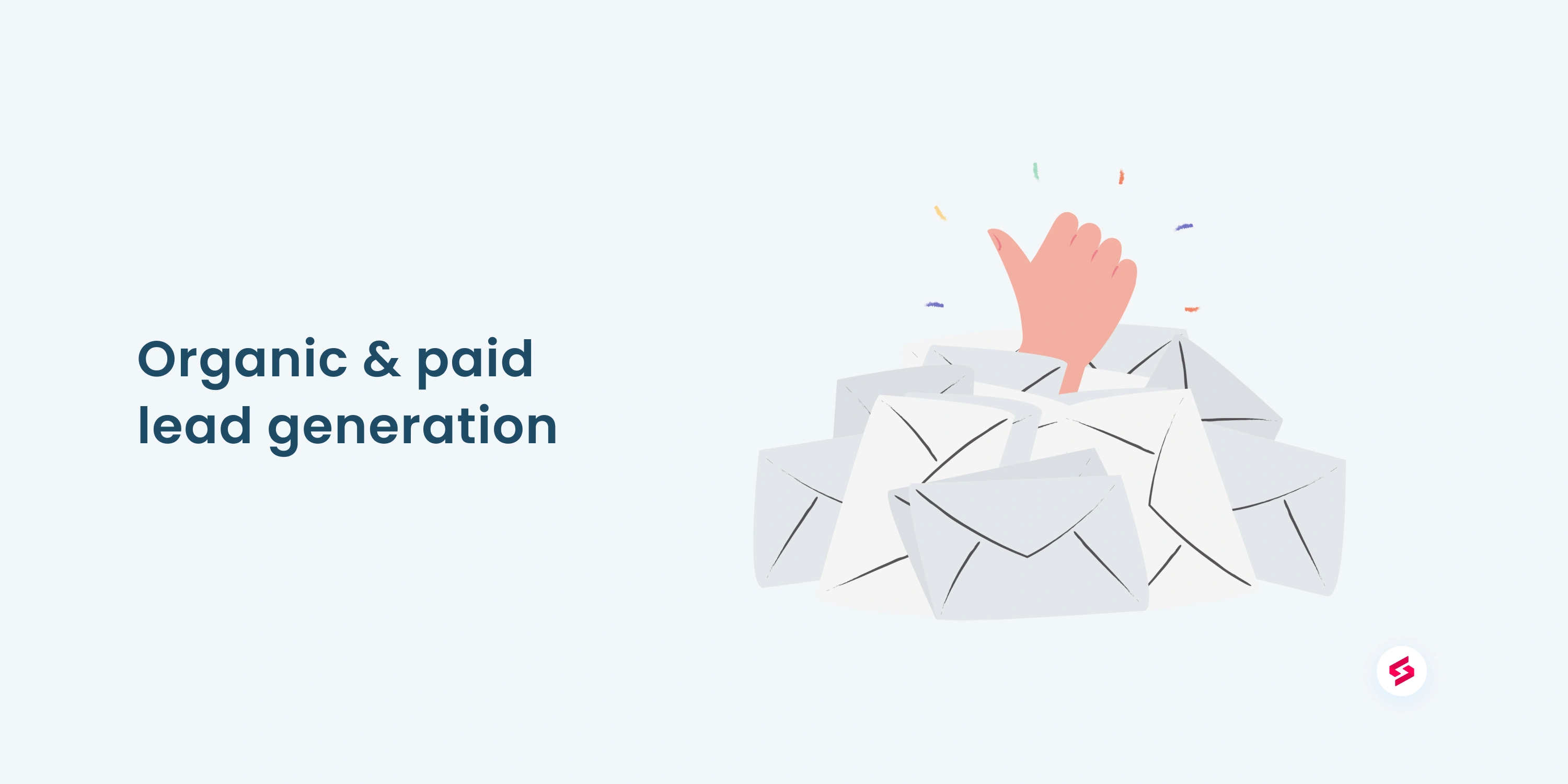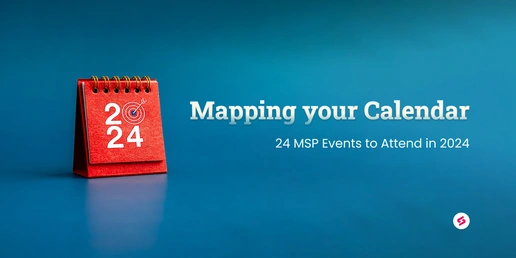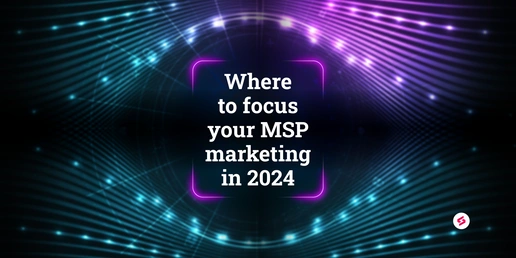Most small MSPs start off by growing organically. You do some work for a client, do a great job, and get recommended to someone else. That’s a great way to grow.
Unfortunately, it doesn’t scale well or rapidly. There are a lot of things you can do to market your MSP. Organic and paid lead generation are two effective ways to grow your business.
Inbound lead generation
Changing IT providers is a big decision for most businesses. They don’t do it lightly, and when they decide to make a change, they are frequently locked in for a term. The challenge for MSPs then comes with not only getting your marketing in front of the right prospects but at the right time.
This is where inbound lead generation in the form of organic search and pay-per-click advertising really excels. It allows you to get your marketing in front of a prospect when they are actively searching for solutions that you provide. That means that they will have a much higher likelihood of converting and becoming a new client. Inbound lead generations are essential for MSPs that want to grow their business.
Keywords
A critical element of both paid search advertising and organic SEO determines which keywords you want to target. These are essentially the terms that your prospect will be putting into google when searching for services like yours. It can be daunting, but there are some great tools like Google Ads Keyword Planner that can help.
The keyword planner tool is a great place to start and get ideas on the type of keywords you should be targeting. It can give you variations that you might not have thought of on your own, and it can also give you essential data on the volume of search traffic each keyword gets.
There are a few things to keep in mind here. You want to put yourself in the shoes of your prospect. If you were searching for a new company that did what you did, what would you search for? A lot of MSPs target the keyword “Managed Services”. This is a mistake because it’s an industry term, and most businesses looking for help don’t know it. That’s not to say it has no place at all in your keyword strategy. Simply that it probably shouldn’t be your number one target keyword.
Another thing you should keep in mind here is buyer intent. Essentially, you’re trying to figure out the intention of the prospect that is typing in that keyword. A keyword like IT Support may have a higher search volume, but you could have different folks searching IT support for various reasons. Not all of them will be someone actively looking to buy IT services. However, a keyword like Best IT Company expresses a higher buyer intent. Folks that are looking that up are almost definitely in the market for your services. You want to make sure that they see your marketing.
To sum it all up:
- Put yourself in the shoes of your target market and try to think up what keywords they would search for.
- Use tools like Google Keyword Planner and others to expand your keyword lists, catch variations, and gather critical data on search volumes.
- Strategize search volume vs. buyer intent. The sweet spot will be a strategy that has you targeting the keywords that have both search volume and intent with a mix of keywords.
Paid vs. organic lead gen
Most business owners love the idea of organic SEO because aside from the time you spend optimizing your site or paying a professional to do so, it's FREE. Everybody likes free. However, one of the challenges with organic SEO is that it takes time. Sometimes 6-12 months. That’s where paid search can help. It allows you to build a campaign and immediately start seeing results.
The keyword strategy that we’ve discussed is a key component to a successful paid search campaign. Keywords with high buyer intent are particularly important with paid search because you pay for every click. You want to be extremely cautious about using broad-match keywords that aren’t as targeted. This may get you many clicks but will result in fewer conversions and a lot of wasted advertising budget.
There are things you can do to mitigate this risk with negative keywords and careful keyword planning. It may be worth getting some training before starting your first PPC campaign or engaging with an expert to help you set it up.
Where to target
One of the great things about both SEO and PPC campaigns is that it allows you to target your audience geographically with ease. Most MSPs have a service area of about 50 miles from their office, where most of their clients reside. With PPC, you can specifically target your geography by specifying which cities or counties you want your ads to show in.
With an organic campaign, you can target keywords that have tags for the city or state you’re targeting. Instead of simply IT company, you can target Salt Lake City IT Company. This also helps you with local SEO and to show up in the local pack search.
Landing pages
To make your PPC campaign the most effective, landing pages are a great idea. It is a webpage specifically designed to answer your prospects questions and get them to convert into a lead. Have a couple of pages build that have content specifically related to your top searches optimized for conversion. This will help to maximize the results of your paid search.
CRMAs those leads start to pour in, you’ll need a process to manage them. Having a good CRM (Customer Relationship Management) tool will help you to track your prospects from lead to closed sales. It allows you to keep notes, make appointments, and communicate centrally. This is vital because with all the energy it takes to get a prospect into your sales funnel, we don’t want to lose them after the fact.
RoI
One of the great things about any digital marketing efforts is that you can track how many conversions you get quickly. Google AdWords and Google Analytics will allow you to set up conversion tracking.
When a user takes a specific action on your site, like filling out a form to request information, it will automatically add it to your reporting. It allows you to see what keywords they converted from on a PPC campaign. That helps you know where to adjust your efforts for more efficient conversions.
Once you’re collecting that conversion data, track how many of those prospects turn into new business. That dollar amount minus the money spent on your campaign allows you to calculate RoI or your return on investment. Achieving a positive ROI on your marketing efforts is the goal of every marketer.




